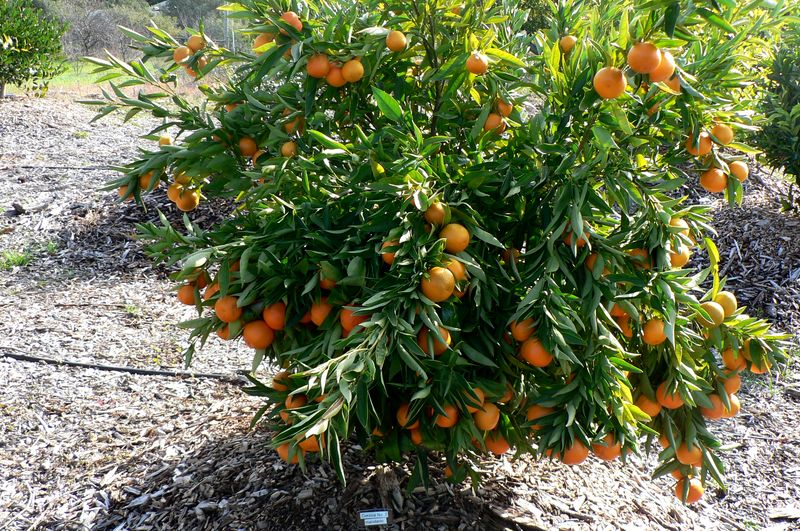The Evil That Ignorance and Incompetence Can DoBy Jose A. CarilloMany years ago, when I was in second year high, something happened that changed my family’s fortunes forever. We looked forward to a bountiful harvest that summer in our two-hectare citrus orchard in a farming town in the Bicol Region. After more than ten years of backbreaking nurture, the orchard’s more than 200 citrus trees had finally reached full fruition. They had already fruited four times during the previous two years, yielding fruits so luscious they attracted even wholesale buyers from faraway cities. This time the trees blossomed even more profusely, and my father expected a harvest at least double the previous one. A long-awaited prosperity was finally in sight for the family.

Due to unexpected rains in January of that year, however, a dense growth of weeds, cogon (a local reed), and creeping vines had enveloped the orchard. My father, at that time an elementary school head teacher, was terribly upset by this; if the undergrowths were left unchecked, the trees would choke and the harvest volume would drop. But farmhands were hard to find at the time; most were on extended summer-long rice harvesting sorties elsewhere in the province. Desperate, my father sent word through relatives and friends that he needed someone to clean up the orchard very quickly.
The day after, a man came to our house for the job. He was in his late 50s or early 60s, practically a stranger in our parts because he lived with his in-laws in a faraway village for most the year. He wasn’t the usual weather-beaten person who worked in farms. He arrived astride a strikingly clean carabao (water buffalo), without the usual flecks of dried-up mud that drew swarms of gnats and flies in their wake. He was so neat even in ordinary clothing, sporting a bolo with a handsomely crafted handle and an intricately carved scabbard. Although a man of very few words, he was prone to hyperbole, the way some unschooled people would try to show off that they are intelligent and worldly wise. In any case, he convinced my father that he could do the job on contract in four days flat. My father, deathly worried about his citrus harvest, readily accepted the man’s stiff quotation and gave him a hefty cash advance.
The man came back the following morning with two teenage farmhands in tow. I accompanied them to the orchard, which was about 150 meters away, hidden from view by a thick bamboo grove and a clump of trees. On arrival they promptly started hacking away at the undergrowth with their hoes and shovels, cutting deep into the soil, severing the surface roots of the citrus, and exposing earthworms all over the place. I remonstrated against this brutal weeding process, which would usually be done with long bolos, but the man simply laughed and said in the vernacular, “Don’t worry, son, there are more of those earthworms where they come from.” “Yes, but please cut only the grass and the vines and don’t dig deep into the ground,” I said. “Otherwise, you’ll be damaging the roots of the citrus.” “All right,” the man relented. “We’ll cut gentler and shallower, but tell your father that it will slow us down.”
The three made good progress. By the third day they had already cleared over three fourths of the orchard’s undergrowth, methodically piling up the cuttings outside the now-bare circular areas underneath the foliage of each citrus tree. In the summer heat the cuttings quickly dried up and turned brown and crisp, the sight of which made my father remark with elation that they would soon crumble, decay, and turn into natural fertilizer for the trees. My father was obviously delighted with his decision to hire the man, who had proved very efficient in his work.
Past three in the afternoon of the fourth day, the man and his three assistants came to our house and informed us that they had finished the job. We served them refreshments in appreciation, after which my father gladly handed the man the final payment—plus a generous tip. “Thank you,” was all the man said. As he and his assistants were leaving, however, he turned around and added: “By the way, it wasn’t part of the contract, but we thought of doing something extra to spare you the trouble. We burned the cut grass and vines to make the fruit orchard really clean. We set fire to the pile from all four corners of the orchard, so I think all of that unsightly debris should be gone by now. Check it out for yourself.”
Even now, many years later, I still can’t imagine by what perverse logic and reasoning anyone could have done it, but along with the cut grass and vines, the man had burned practically all of the citrus trees and our future to a crisp.
(circa 2003)This essay, which first appeared in my English-usage column in The Manila Times
in 2003 and subsequently formed part of my book Give Your English the Winning Edge
, is part of a collection of my personal essays from mid-2002 to date. I’ll be posting one of them in Jose Carillo’s English Forum every Wednesday from October 26, 2016 onwards.